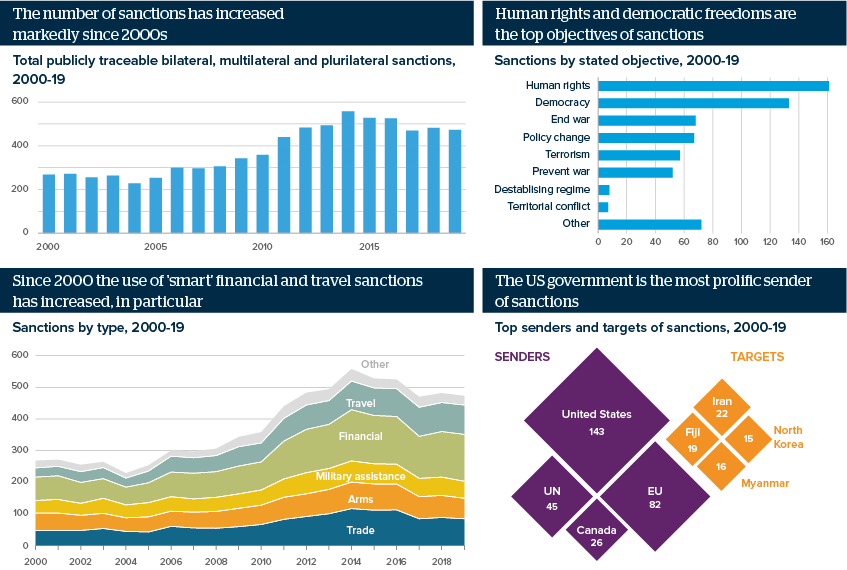Western use of targeted sanctions is intensifying
Sanctions are an important tool of coercive foreign policy, especially for Western policymakers
Source: Global Sanctions Data Base (March 2021); Felbermayr et al, 2020; Kirilakha et al 2020
Outlook
The use of targeted financial, travel and trade sanctions to coerce countries, organisations and individuals to change their practices is likely to rise. The US government will remain the most prolific ‘sender’ or imposer of sanctions, followed by the EU.
Unlike its predecessor, President Joe Biden’s administration will impose fewer sanctions related to US-bound migration, including from Muslim-majority countries. It will also face increasing pressure to rethink fuel sanctions on Venezuela, which are worsening the economic crisis without weakening the Maduro government.
New targeted US sanctions are possible against Russia (relating to chemical weapons) and against China (over state-sponsored repression of Uighurs and the curtailment of democratic freedoms in Hong Kong).
Impacts
- The Nord Stream 2 pipeline will pit Washington’s sanctions resolve against its desire to improve ties with Germany.
- Beijing will retaliate, wherever possible, against countries that impose Uighur-related sanctions against China.
- Biden will not lift US sanctions against Iran related to human rights abuses and election interference.
See also
- Russia will hope to escape US sanctions on debt - Mar 29, 2021
- Staged Iran-US nuclear deal return will be challenging - Feb 4, 2021
- Middle East sanctions will mostly misfire - Nov 19, 2020
- More graphic analysis
